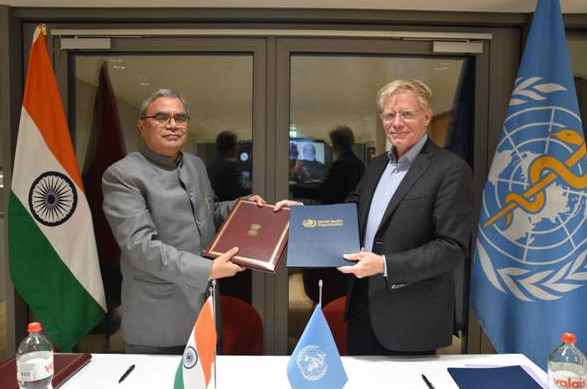WHO & Ministry of Ayush ink Traditional and Complementary Medicine 'Project Collaboration Agreement'
November 20, 2023 | Monday | News
To mainstream Traditional and Complementary Medicine into India's National Health System
image credit- PIB
The Ministry of Ayush and World Health Organization (WHO) have signed Traditional and Complementary Medicine 'Project Collaboration Agreement' late last week in Geneva. Indra Mani Pandey, Permanent Representative of India to the United Nations, on behalf of the Ministry of Ayush, and Dr Bruce Aylward, Assistant Director General, Universal Health Coverage and Life Course Division, on behalf of WHO, signed the agreement.
The main objective of this agreement is to standardise Traditional and Complementary Medical Systems, integrate their quality and safety aspects into the National Health System, and disseminate them at the international level.
Through this cooperation agreement, efforts will be made to connect Traditional and Complementary Medical Systems with the mainstream of the National Health System. To fulfil this objective, Traditional Medicine Global Strategy 2025-34 will be prepared by WHO with the support of the Ministry of Ayush.
Other major objectives of the agreement include efforts to strengthen the system of training and practice in the field of Complementary Medicine System 'Siddha', formulation of guidelines for the listing of Traditional and Complementary Medicines, safety and related efforts, etc.
An International Herbal Pharmacopoeia of herbs found in South-East Asia will be developed by the Ministry in collaboration with WHO. Efforts will be made under this agreement to integrate evidence-based Traditional and Complementary Medicines with the National Health System, conservation and management of biodiversity and medicinal plants, etc.









